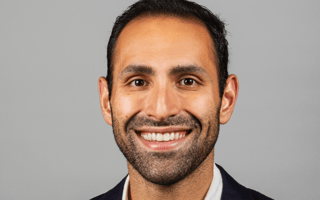
Office culture has changed drastically since the pandemic. Many employees have discovered that much, if not all, of their work can be done from the comfort of their own homes. As a result, plenty of swanky corporate spaces have gone largely unused in recent years.
However, the rise in remote work hasn’t spelled the end of physical offices. Organizations across the country have sought out ways to keep their teams happy whether they’re in the office or not. One of the main incentives for in-office work tends to be the promise of free food, but choosing items employees will actually like is typically a costly guessing game.
Zerocater allows employees to basically choose for themselves. The company announced Thursday it raised a $15 million Series C to enhance its corporate cafeteria and catering solution. Led by Cleveland Avenue, the fresh capital will help Zerocater expand into new markets.
Zerocater offers cloud and hybrid solutions for helping organizations stock their kitchens without worrying about overspending on too much food or buying the wrong food entirely.
“We build corporate cafeteria and catering programs that employees love with the goal of saving companies millions of dollars as they transition to the hybrid workplace,” Ali Sabeti, Zerocater’s CEO, told Built In. “Zerocater originally started because we saw that there was such a need for companies to be able to feed their employees and do so while offering that customization and flexibility that was so important even 10 years ago as startups really began to implement food programs ... following in the footsteps of companies like Google and Facebook.”
Since the number of employees coming into the office varies from day to day, Zerocater can help companies buy manageable quantities of food based on exactly who will be in the office at any given time. Furthermore, the food available will reflect the cuisines those particular employees have expressed their taste for.
Zerocater partners with a network of more than 450 enterprise food purveyors. Using the company’s mobile app, employees can swipe left or right on a menu item, allowing Zerocater to collect data on their preferences for taste profiles, preparation methods, proteins and more. The platform processes this data with machine learning tech to help companies build out curated meal options. Employees can then enjoy a buffet-style spread or individually packed box lunches on the days they specify they’ll be in the office.
Zerocater largely shifted its product focus following the onset of the pandemic. What once was a matter of providing customized food options evolved into ensuring those custom food items don’t go to waste. Large companies, in particular, have been the most confounded by this dilemma as fewer employees show up to the office more infrequently.
“That’s where we saw the biggest opportunity,” Sabeti said. “We really shifted our entire product strategy to focus on those larger companies and be able to offer that immense variety that an employee at a large company expects when they walk into that cafeteria, but do so in a way without building outside kitchens. [With Zerocater], companies don’t have to commit to spending $10 million on capital expenditures; it’s very flexible for them.”
Outfitted with its fresh capital, Zerocater plans to expand its reach to more enterprises across the country. Currently operating in the Bay Area and New York, the company serves customers like Datadog, Splunk and Robinhood. Next Zerocater will grow into cities like Boston, Seattle, Denver, LA and Chicago, as well as its first international market, Toronto.
Zerocater’s team will grow within each of these markets as well. Last year, Zerocater was a team of 35 people. Today, it stands at around 240. The company plans to hire across the board as it continues its recent momentum. It lists a range of open roles on its site across catering, operations, engineering, sales and more.




